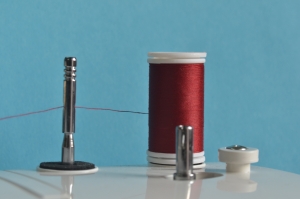Insurance Law, Trials, and Fraud. Lying Under Oath: Easier Said Than Done
 Lying and Insurance Fraud go together. Cheat, steal, get caught, admit it; which one doesn’t belong? Better yet, be honest when you cheat. No, that doesn’t work either. Most every time someone tries to get away with something he shouldn’t, chances are he’s going to lie about it somewhere along the line. Investigators need to know how to ask questions, elicit answers, and get at the truth; so, chances are, they should all know a good lie when they hear one.
Lying and Insurance Fraud go together. Cheat, steal, get caught, admit it; which one doesn’t belong? Better yet, be honest when you cheat. No, that doesn’t work either. Most every time someone tries to get away with something he shouldn’t, chances are he’s going to lie about it somewhere along the line. Investigators need to know how to ask questions, elicit answers, and get at the truth; so, chances are, they should all know a good lie when they hear one.
Detecting, and exposing, lies also is a big part of trial work. A trial attorney wants to make certain that the jury at least will doubt, if not see right through, slanted testimony; will see the inconsistencies, understand the contradictions, and punish the lies; or even scoff at the willful forgetfulness. Cross-examination, impeachment in general, and artful closing arguments all can accomplish this. Knowing a lie is essential to ensuring that everyone else does, too.
Everyone thinks they know a lie when they hear one. They believe they can tell the difference between a deliberate falsehood and an innocent mistake. That’s probably one reason lying is the focus of so much comedy. Think of the Jon Lovitz character from Saturday Night Live, with his blatant lies getting cackles from the studio audience. Then compare him to poor little Emily Litella who seemed to spend most of her time trapped in an endless game of telephone, never getting things quite right, wondering what all the commotion was about violins on TV. Or think about how funny it was to see Jim Carrey playing a slick attorney in the movie Liar Liar, who, for 24 hours straight, had to tell the truth and nothing but the truth. Some lawyers, I mean every lawyer, thought that was funny; yeah, that’s the ticket.
There’s an interesting recent study, though, that says maybe people can lie about certain things more easily than others. If that’s true, then maybe it’s easier to tell a lie when you say one than it is to know a lie when you hear one.
The study found that the harder people had to work to lie the easier they could remember the lie; not just the details but even the fact that it was a lie. The study was conducted by LSU associate professor, and psychologist, Sean Lane and former graduate student Kathleen Viera, and was accepted for publication in the Journal of Applied Research and Memory Cognition. In particular, the researchers examined two types of lies: false descriptions, where the lies create something that didn’t happen; and false denials, where the lies deny something that actually did occur. Put another way, the false description is the alibi, and the false denial is the reason for the alibi.
It turns out that the test subjects had a much easier time remembering the false descriptions than the false denials. The liars who gave false descriptions were able to recall them in detail, 48 hours later; the ones who gave false denials had a lot more trouble doing so. According to Lane, this was due to the large amount of work involved in creating a false description: when nothing actually happened, you have to pretend, and convince someone, that it actually did. The point of the study, basically, is that the harder it is to make up a lie, the easier it is to remember.
Lane explained that when you make up a false description you have to keep a lot in mind, much more than in a false denial. In a false description, you have to do more than make up a story; you have to make up a believable story, and that isn’t easy. You have to play to your audience; think about how detailed your description should be; how confident you should appear in telling it; and, if your audience isn’t buying it, change things, on the fly.
If this study is accurate, then it might be easier to remember the lies because of, rather than in spite of, the details. It means that details should be confirmed by more than one source and, just because someone remembers them doesn’t mean they’re true or it happened that way. Sometimes, just sometimes, details don’t equal the truth; sometimes, perhaps, they mean the opposite.
Ray Grasing
 New York Business Lawyer Blog
New York Business Lawyer Blog

